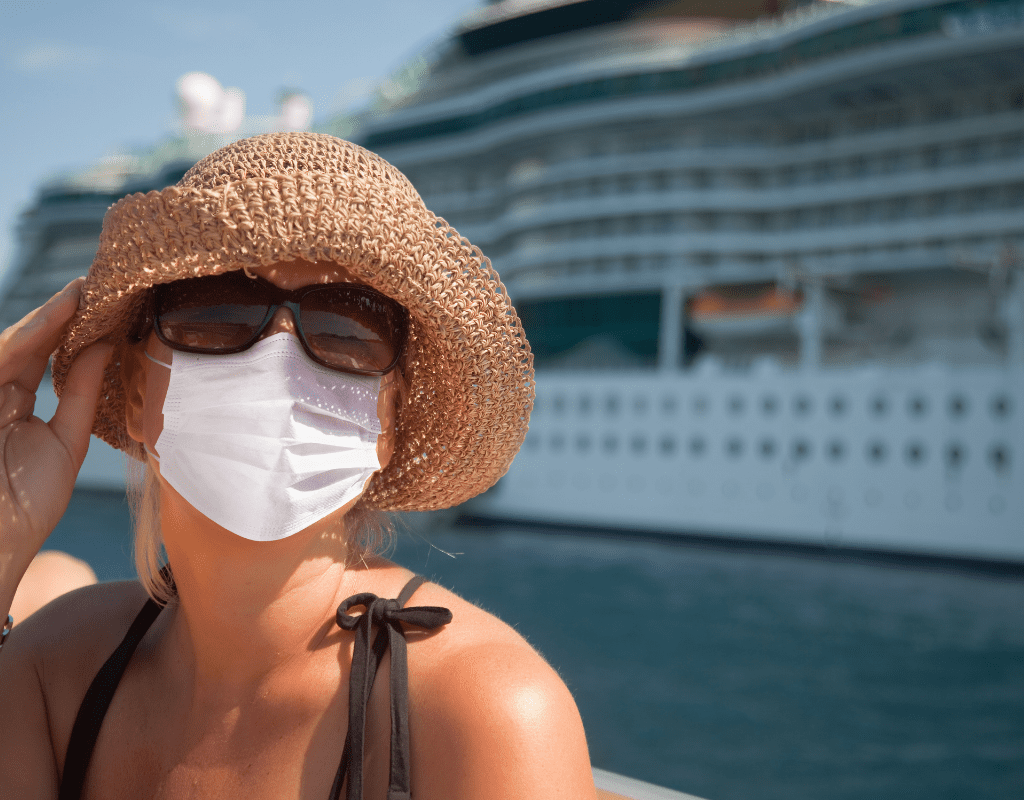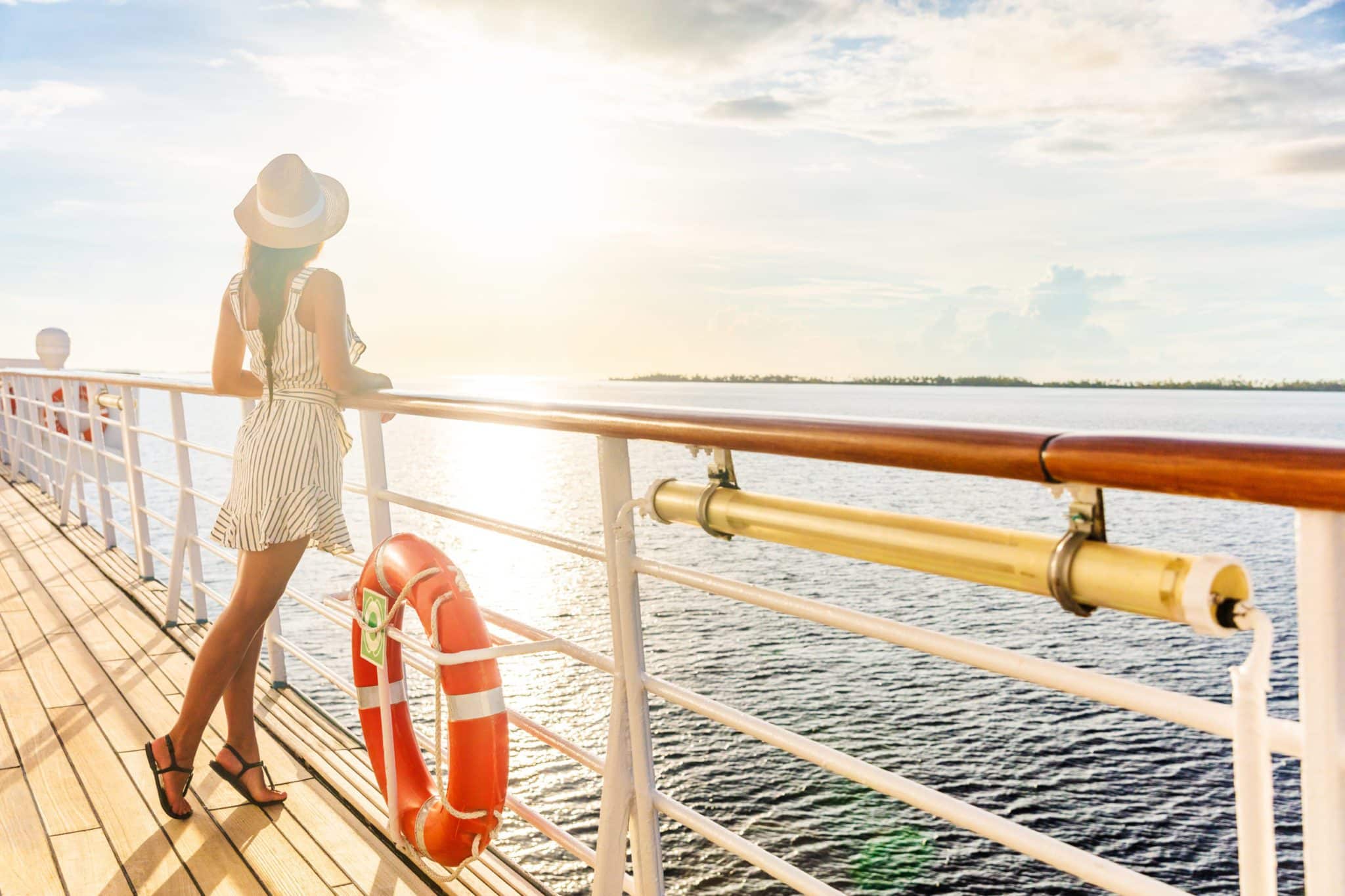As the number of vaccinated Americans continues to rise, travel restrictions are relaxed, and cruises are ready to set sail on the ocean blue. Cruise lines have been encouraged to go to great lengths to ensure that COVID-19 outbreaks will be stamped out at first sight through cruise safety protocols.
COVID-reducing protocols include but are not limited to social distancing, limited capacity, mask policies, and COVID-19 testing. These have been implemented to curb an outbreak from the start. While cruise lines are expected to do their part, you are also expected to keep in mind your own safety and the safety of those around you.
In this post, we will go over everything you need to know to optimize your safety on a post-COVID-19 cruise ship.
The CDC’s Guidelines on How to Stay Safe on a Cruise
The CDC’s general message about attending cruise ships is: the chances of getting COVID-19 aboard a cruise ship are high, because COVID is known to spread more easily between people in close vicinity. Unvaccinated or immunocompromised individuals are greatly encouraged to avoid traveling on high-density transportation.
Many cruise lines may require proof of vaccination or have a special area sectioned off for vaccinated people in which masks and physical distancing are optional. Not all cruise lines, however, require vaccines.
CDC guidance states that ships with at least 95% of its crew and passengers vaccinated are able to safely loosen their COVID restrictions.
Ensuring Your Safety and Those Around You Each Step of the Way
Making the Decision to Travel
If you are an individual at an increased risk of severe illness, of if you’re not fully vaccinated, you are more likely to contract COVID-19. Therefore, you are advised to avoid traveling on cruise ships.
If you are not yet fully vaccinated and decide to travel regardless, the risk of contracting COVID will be assumed. It will be up to you to maintain a COVID-friendly composure while embarking on this cruise in order to protect yourself, others on the cruise, and those around you back home.

Discuss your decision with a healthcare provider that you trust. They will know to advise you with medical certainty, especially if you are an older adult or have an underlying medical condition.
Before You Travel
If you have decided to assume the risks of COVID-19, make sure you
- Get fully vaccinated against COVID-19
- Get tested for COVID-19 one to three days before your departure
- Get travel insurance in case you need it to cover health care and emergency evacuations
If you have tested positive for COVID-19 within the past three months and have met the criteria to end isolation, you do NOT need to get tested before or after travel unless you are symptomatic. If you do get tested, travel with a copy of your positive test result and a letter from your healthcare provider or public health official stating that you have been cleared for travel.
While You Travel
Stay at least 6 feet from anyone who is not in your travel group. Whether you are indoors or outdoors, close interpersonal proximity is the fastest way a virus can spread.
Social distancing can be difficult to manage on a close-proximity cruise ship where confined spaces are filled with strangers. But, as Dr. Richard Watkins, an infectious disease physician and a professor of internal medicine at Northeast Ohio Medical University says, “The risk, if you’re vaccinated, is very low.”
The CDC and the vast majority of doctors agree that maintaining proper hygiene and self-care reduce your risk of contracting and spreading COVID:
- Wear a mask over your nose and mouth when in shared spaces. Any form of public transportation traveling into, within, or out of the United States transportation hubs (airports, seaports, subway stations) requires masks to be worn.
- Wash your hands often or use hand sanitizer (at least 60% alcohol).
- Avoid touching your eyes, nose, mouth.
- If you notice symptoms of COVID-19, notify the onboard medical center immediately to avoid spreading the virus further.
Cruises, as Dr. Amesh A. Adalja of Johns Hopkins Center for Health Security notes, “…can be done safely with a combination of testing and vaccination.”
After You Return
At the end of the day, it is not just your health that may be jeopardized by high-risk travel. Any cruise-contracted illnesses are on the lookout for new off-cruise hosts to infect.

In order to protect the people you love, it is highly advised to get tested for COVID-19 three to five days after your trip. This will help ensure that you are not unknowingly spreading cruise-contracted COVID to those around you.
Even with a negative test, the CDC still highly recommends that you self-quarantine for 7 days after a negative test, in order to be as close to 100% sure as possible.
During your self-quarantine and even after, keep monitoring yourself for COVID symptoms. It is especially important to avoid being around people who are at an increased risk for severe illness for at least 14 days.
Those around you are likely those whom you love. You can protect them by protecting yourself.
About the Author:
Andrew Winston is a partner at the personal injury law firm of Winston Law. For over 20 years, he has successfully represented countless people in all kinds of personal injury cases, with a particular focus on child injury, legal malpractice, and premises liability. He has been recognized for excellence in the representation of injured clients by admission to the Million Dollar Advocates Forum, and named one of America’s Top 100 High-Stakes Litigators. Mr. Winston is AV Preeminent Rated by the Martindale-Hubbell Law Directory, enjoys a 10.0 rating by AVVO as a Top Personal Injury Attorney, has been selected as a Florida “SuperLawyer” from 2011-2020 – an honor reserved for the top 5% of lawyers in the state – was voted to Florida Trend’s ”Legal Elite,” recognized by Expertise as one of the 20 Best Fort Lauderdale personal injury attorneys, named one of the Top 100 Lawyers in the Miami area for 2015-2017, and one of the Top 100 Lawyers in Florida for 2015-2017 and 2019.







